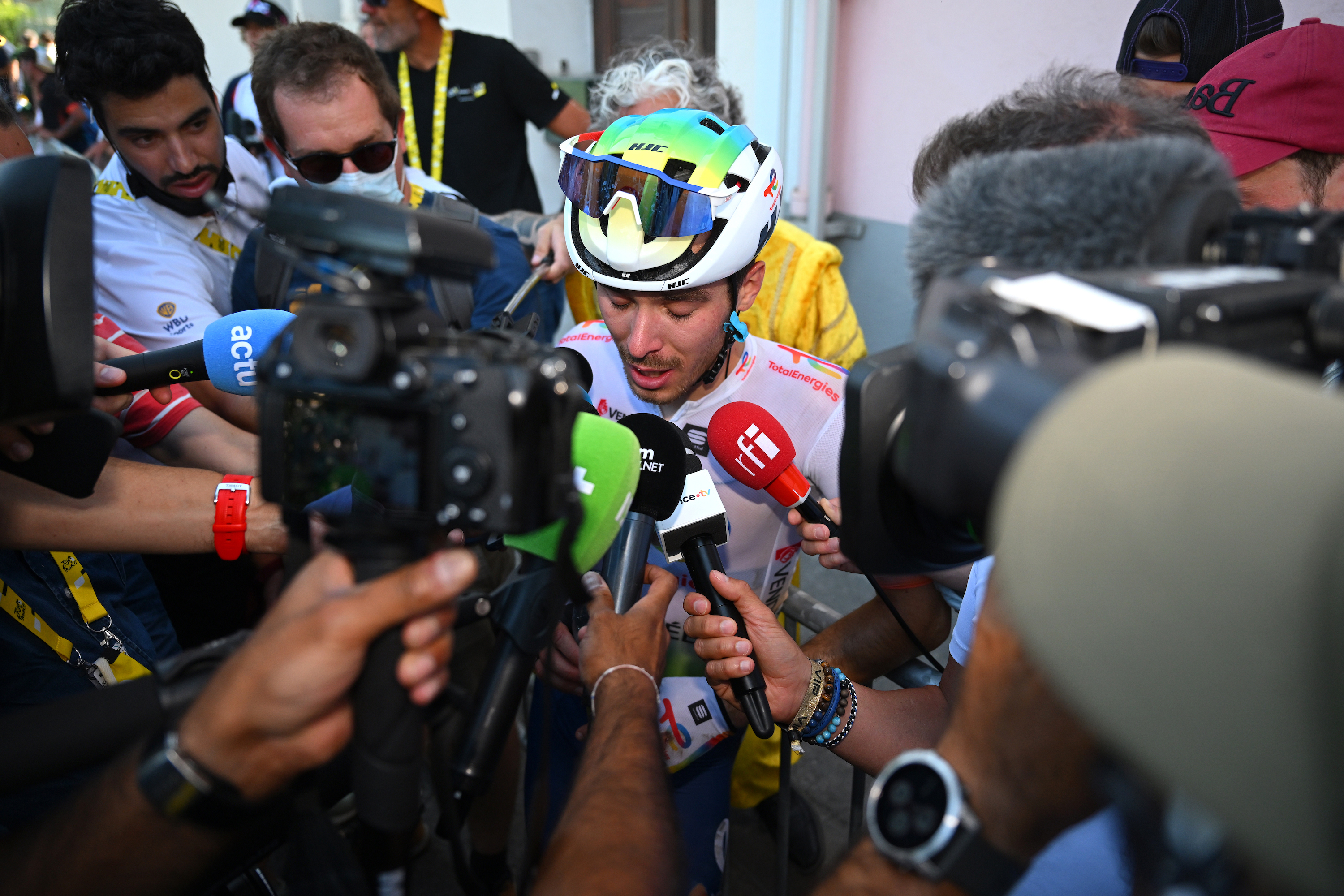Mattéo Vercher was crying uncontrollably. Hordes of people, everyone with a camera, circled around him. His back was pressed against the fencing, his feet dangled on the road, and his hands covered his face. The tears continued to fall.
The 23-year-old TotalEnergies rider had just finished second to Victor Campenaerts on stage 18 of the Tour de France, his first ever appearance in the race. In 2022 he was a club cyclist, but here he was now, just a few hundred centimetres from winning a stage in the world’s biggest bike race. Two bike lengths away from a win he would have dined out on for the rest of his life.
“I’m sorry,” he sobbed to his teammates, his hands wiping yet more tears away. “No! Don’t be sorry!” responded one of his colleagues. “Did you see what you did! Come on! It’ll be fine!” Vercher wasn’t listening; the tears persisted. “You can be proud,” declared another teammate. “What you did is huge. It’s enormous! Don’t worry, there will be others.”
But what if there aren’t other opportunities? What if that was it? Vercher rides for a second-tier ProTeam only in the Tour on invitation. He, unlike Tadej Pogačar, Jonas Vingegaard and the other big players, can’t rest easy knowing that they’ll definitely be back at future Tours. Vercher, though clearly talented and with age on his side, might not be. So many bike riders race one Tour de France and never return. What if this was his one and only chance to become a stage winner in the Tour de France?
“A competitor wants to win so coming second is sure to suck,” Vercher said once the tears were under control. “Afterwards, if you look at the whole day, it’s a great result. In two to three hours, tomorrow, I’ll be happy, but now coming second sucks.”
That Vercher, unbeknown to most of the public before the day, was even in contention for the win in Barcelonnette was a surprise given that he crashed in the day’s neutral zone. “I stupidly hit a barrier,” he said, “but hey, nothing too serious, just a rip in my bib shorts.”
He was one of four TotalEnergies in the large breakaway, the most represented team looking for their second win of the race after Anthony Turgis’s victory on the stage nine gravel. Towards the end of the day, Vercher found himself off the front with Campenaerts and Ineos Grenadiers’s Michał Kwiatkowski, and inside the final kilometre, with it certain that one of the trio would be victorious, Vercher tried an audacious attack.
“After the flamme rouge we played the game and what happened, happened,” he reflected. “I attacked because they left me a gap but I didn’t necessarily want to. I took the opportunity and that’s it.” Campeanaerts prevailed, seven months of specific preparation just for this stage rewarded how he had hoped, but for Vercher it was second best, first loser. “That’s how it is, that’s the game,” he sighed.


